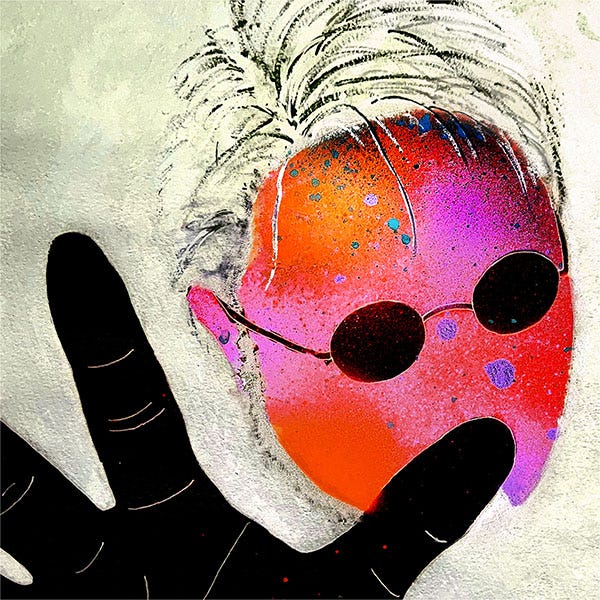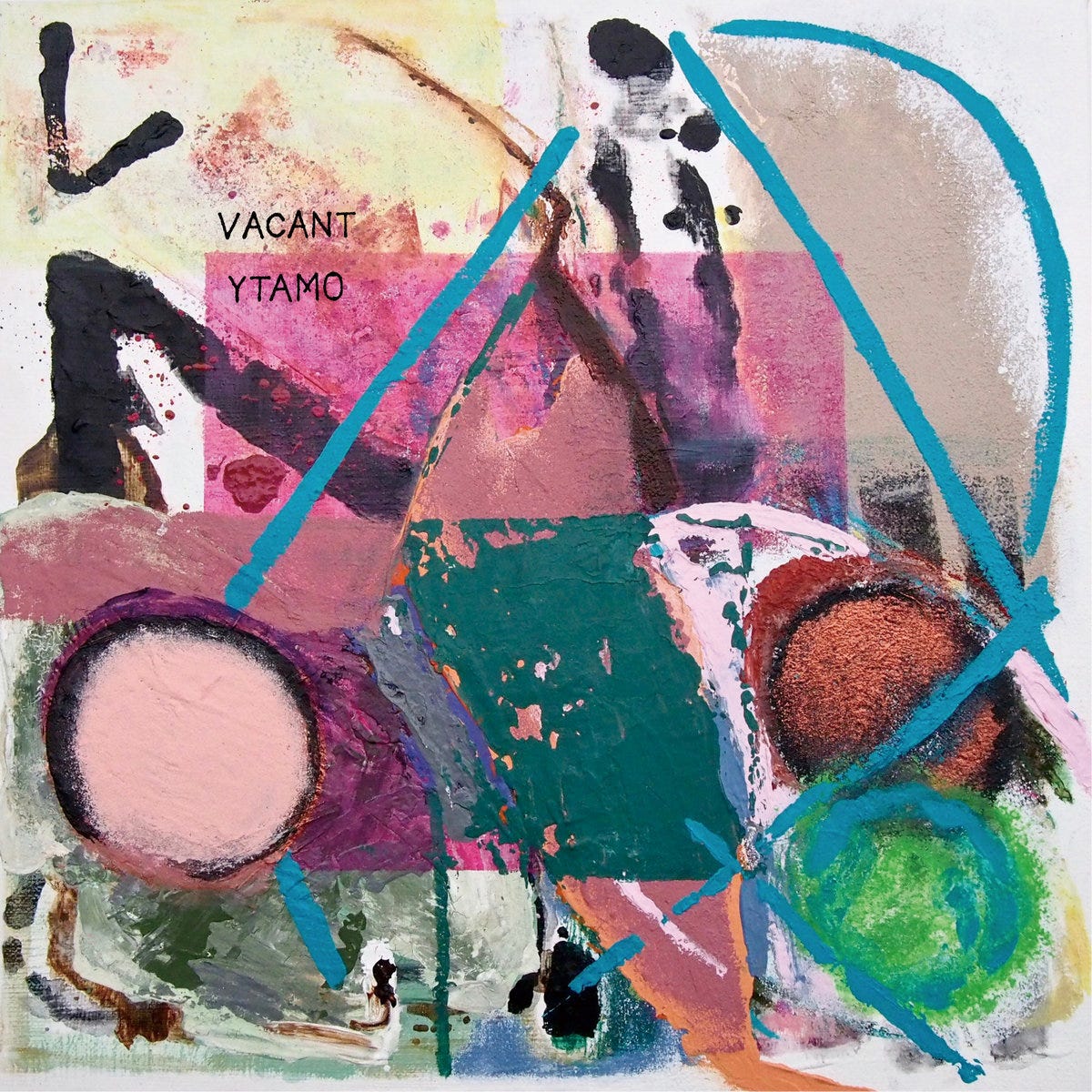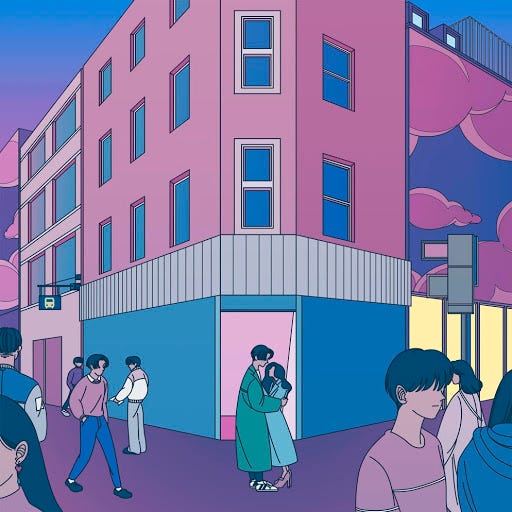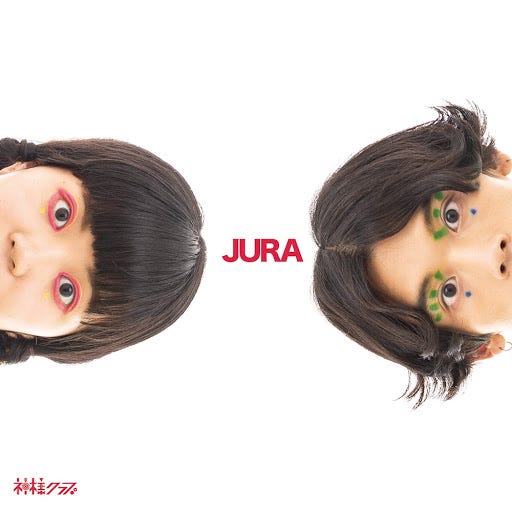Make Believe Melodies Favorite Japanese Albums 2020: #20 - #11
After A (Long) Break, Back Again To Look Back On The Year That Was!
#20 Namichie Mainichi Rainichi
Few moments in Japanese music in 2020 matched the excitement of firing up “Zoom” for the first time and seeing a whole new world open up from a YouTube box. Six rappers with drastically different histories — former supernova turned major-label underachiever turned independent spark Akkogorilla performs alongside genre-blurring artist Haruko Tajima and emerging MCs such as Valknee and Marukido — come together for a pandemic-inspired broadside at modern life doubling as a welcome re-imagining of what’s possible with domestic rap at the start of the 2020s, a period that was shaping up to be as male-centric as most of the years before it. Only “GOKU VIBES” later in the year really approached it thanks to four artists delivers the verses of their life, with the added thrill of Japanese and South Korean rappers linking up for something so frenetic.
Everyone involved in “Zoom” had a good 2020, with Valknee and Marukido already popping up in the back half of this personal list. It was Namichie and her debut album, however, that stood out among the Zoomgals camp. Mainichi Rainichi shines thanks to Namichie’s rapping, at times relaxed but on songs like the twinkling “Yokohama Nuremburg” turning urgent. Throughout, the MC locks her attention to the realities of life in Japan from a multi-cultural background, best delivered via a left hook riffing on a uber-popular show where TV Tokyo camera crews go to Narita Airport and ask foreigners…why did you come to Japan? As a sociological document, it’s one of 2020’s most important pieces of pop culture, to be slotted aside Naomi Osaka’s continued rise and that Nike ad. Yet removed from all that, it’s just a great rap album too, showcasing an emerging voice as it figures itself out. Listen below.
#19 Yoshida Ichiro Untouchable World Episeshi
Bassist Ichiro Yoshida started working on what would become Episeshi in the wake of major change in 2017, according to his own notes on the album — he left Zazen Boys after 11 years in the band, finding himself with time to revisit musical ideas and sketches accumulated over the last two-plus decades of living. Finally released in 2020, Episeshi is the sound of an artist usually playing a support role in other projects stepping forward and unloading an existence-worth of creativity into the world, no inkling too old (some of these first taking shape in his mind in junior high school) or too left-field (haunted bossa-nova topped off by what might be MIDI bagpipes? whoozy funk inspired by the first-ever footage of a giant squid?) to be fully realized. The same attention to detail and goofiness Yoshida brought to his tenure in Zazen Boys shapes his second solo collection, with extra emotion dripping out of what feels like a word in waiting for the bulk of his life. He makes it count. Listen below.
#18 Chara + YUKI Echo
What easily could have been a nostalgia trip turned trap becomes a celebration of the moment courtesy of two J-pop mainstays never content to simply look back. During the 2010s, YUKI and Chara have used their albums as a way to link up with emerging artists, to play with new ideas that other performers at their level rarely wade into. Echo proves to be a triumph of curation from them, wrangling in a mix of electronic creators (Seiho helping to construct the funk snap of “You! You! You!,” beatmaker mabanua laying down a jazzy hop on “Night Track”) and rock-adjacent tinkerers (Tendre making themselves known as a composer begging to be part of the J-pop conversation via the elastic “Tanoshi Kenobi,” Kan Sano reminding of why he is part of that tier with the soft-twinkles-gone-arena-ready soar of “Tori No Burochi”) to craft one of the best snapshots of where J-pop was at over those 12 months, and the ways it might go. Chara and YUKI are right in there, though, interacting with the world around them and seeing how they can fit in and, even better, find fresh angles on it. They refuse to settle, but show they are as vital to the musical discourse as they were in 1999. Listen below.
#17 Sayohimebou ALIEN GALAXY MAIL
Part of me just wants to vomit up every adjective I know while waving my hands around — so much happening here, guys! Robo voices powdered over zero-gravity synth melodies set to a beat that can’t decide which direction to go, ultimately opting for…all of them? If Max Tundra was tasked with filling the Voyager Golden Record, and said satellite then fell through a wormhole, it might come out like this? The real HyperPop, am I right?
What stops me from linguistic overload are the moments that are completely grounded on ALIEN GALAXY MAIL that make it such a thrill to encounter. Sayohimebou’s music uses hectic pace to push what’s possible and their career has felt like one extreme ASMR session, but they also emerged from a netlabel / internet ecosystem celebrated in all its wild wonder in every pivot to breakcore or rippling use of samples. The electronic sheen Sayohimebou coats over their vocals on numbers such as “Summer Skate Link” and “ON-GAKU” bring back memories of sifting through blogs in the late 2000s when vocoders suddenly became cool again, or the speed of the whole album brings to mind the best nights escaping into clubs. ALIEN GALAXY MAIL wows because of how otherworldly it sounds, but it’s heart is even easier to locate. Listen below.
#16 AMUNOA CRYPTID
There’s no need to sacrifice rush for refinement — the mosh-ready tune can co-exist with the meticulous. Every memory of AMUNOA I have before CRYPTID is of pure energy being released, whether through earlier sliced-and-diced tracks or live sets in cramped Ebisu clubs. The beauty of this album is they haven’t dropped any of that…songs still dash ahead, and even the familiar vocal tricks reappear on “JiangShi.” AMUNOA, though, is constructing with new materials, and making more from less. Their attention to detail has gone up, with piano and string melodies glistening off beats (or serving as the driving force of a song like “Shogun”) to create dance numbers that dazzle in fresh ways, or turning to samples of chanting to build upon. It’s a delight to just listen to for the details…but equally fun to lose yourself in. Get it here, or listen below.
#15 YTAMO VACANT
To be the partner to someone going through pregnancy is to feel useless. The best relief you can offer is something UberEats could also provide, while the entire nine months finds you seeing the person you love traverse a process you are completely disconnected from and feels impossible to grasp. VACANT reflects on the intimacy of fostering and then delivering new life, with the creator YTAMO drawing from her own experience having her first child. The songs spilling out from there are hushed, YTAMO’s voice drifting between audio fog while piano melodies unfold around her (“Far Away From Here”) or creating lullabies for her and future kid (“April”). The whole of this album is intensely personal — doubly so for anyone who has served the role of other side, slackjawed at watching anyone exist during this — with only an appearance by Takako Minekawa on the sample-laden poem “2 Vacant Houses” breaking away from YTAMO’s reflection. There’s a sense of warmth and sweetness in VACANT, from the found-sound collages to the softly sung compositions, that so often isn’t present in experimental music, but here invites listeners who may never truly understand what inspired it to bathe in the feeling. Get it here, or listen below.
#14 tricot Makkuro + 10
Simply staying together as a band for a decade is worthy of celebration — doing so while sticking to a very specific sound and avoiding extreme pivots towards potentially more on-trend styles is just unexpected. Kyoto-born tricot managed it for most of their career by remaining independent, but after 10 years they signed to a major label. Did Ikkyu Nakajima’s time in Genie High show them the possibility of going for the spotlight? Could Avex provide them with something grinding it out on their own couldn’t? Maybe, but the beauty of the two albums tricot put out last year was how locked in they were, honoring a milestone by doing what they do best…better than before. Makkuro feels especially attuned to the energy of THE and AND, building around deceptively mathematical guitar lines and drumming, but using this line-chart construction to let emotions run wild via Nakajima’s singing on songs such as “Afureru” and “Junpuumanpan.” They also play with volume and how sparse a tricot song can be (“Naka”), carrying over to latter-half release 10, a set finding the quartet branching out a touch more…flirtations with rap on “WARP" being a particular head turner…but largely continuing to treat tempo like Silly Putty and bounce off of each other’s voices on standouts like “Summer Night Town.” There was no reason to look back on tricot’s 10th anniversary, because they were still pummeling ahead. Listen below.
#13 Saint Vega Nodoteki Silece + Pink Moon & Sweet Room
It’s a question asked yearly; when is Japanese rap going to break mainstream? With every new calendar it looks like the genre’s breakout moment in the country has finally arrived — Kyary Pamyu Pamyu shared a KOHH song! Hoshino Gen is friends with Punpee! Zeebra’s kid is in NiziU! — only to fizzle out well before establishing any top-tier success. As much as I’d like to see “Goku Vibes” on Music Station, maybe there’s a better way of looking at what has played out in this space in the last few years. Rather than being absorbed by the monoculture, what if younger Japanese rappers created an alternative musical zone for people to play in.
As someone who had been (probably overly) cynical about Japanese rap in the first half of the 2010s, I have to say…the last few years have felt epoch shifting, thanks to oddballs like Yurufuwa Gang, the emergence of forces like Awich and the whole “SoundCloud Rap” style bubbling up via parties like TOKIO SHAMAN and kids all over the archipelago linked through social media. Saint Vega’s pair of albums in 2020 emerged from that latter lane, offering the finest summation of this wave yet in all its melodic, Auto-tuned soaked, drinking-outside-of-Kiddyland vibe. A lot of that is owed to Saint Vega inviting emerging creators to join him in his bleary-eyed reflections of city life — there’s valknee and Quja flexing alongside Vega on “Disgusting,” while fellow dour dude PEAVIS joins him down in the dumps on “Sad Baby.” It ends up being frequent collaborator uyuni who works best with Vega, with her sing-song delivery pushing both releases’ highlights like “Soda” and “Mermaid Milky” closest to actually sounding like it could maybe crash the mainstream. Though credit to the Saint himself for melding so well with the tipsy beats around him, mutating familiar landmarks like “Harajuku” and “Takeshita-dori” into sonic syrup as they leak out of his mouth on minor viral hit “Fast Land & Slow Dive.” Yet who cares how many people are creating TikTok dances or even listening to this — like all the other bummed-out youth turning to rap in the country, Saint Vega just wants to create a world for him and like-minded folks to exist, which is more than enough. Listen below.
#12 Kamisama Club JURA
Japanese music took a turn for the dour in 2020, resulting in a pretty heavy emotional hangover carrying on into spring 2021. Duo Kamisama Club’s debut album JURA imagines a world way more limber than what we ended up, sonically or societally. Summarizing their sound remains a tough task even a year after this came out — connecting this to the period of “neo-Shibuya-kei” in the early 2000s thanks to their incorporation of dance elements, embrace of Highlife melodies and general glee in letting cacophony bumper-car into their songs midway through (other potential ties: tUnE-yArDs, Dirty Projectors, Talking Heads raised on YouTube, regular Shibuya-kei). Trying to pinpoint what JURA sounds like is trying to figure out why Oreos taste so good — probably worthwhile, but who cares, dive in. This is nervy pop done perfectly, whether delivered via awkward jog on “N°5,” dissolving strut on “Fruits Talk,” or the spacious squeaks (and…aching emotion?! Oddballs have hearts, too) of “Futsu No Renai.” “Esper” turns dog barks into percussion, like some cursed sound effects record, just a WTF musical moment that works. Kamisama Club sorta vanished last May, and I hope they haven’t called it quits…because JURA points towards the starting point of a fascinating experiment in modern pop. Listen below.
#11 ZOMBIE-CHANG TAKE ME AWAY FROM TOKYO
Probably the highest an album kicking off with the line “where’s my toilet paper?” will ever land on a year-end list…but 2020, am I right? TAKE ME AWAY FROM TOKYO arrived at the exact moment most denizens of the capital craved a weekend out of the city — Go To Travel hadn’t even kicked into high gear by then — and ZOMBIE-CHANG scattered just enough references to our pandemic reality throughout her fourth full-length to make this feel immediate last summer. The benefit of time, though…not to mention the perks of being slow about putting together a list for a period that ended four months ago…reveals TAKE ME AWAY as so much more than a reaction to a state of emergency and requests to stay home.
This is ZOMBIE-CHANG, last seen working with a band to create nervy new wave, trusting herself to channel pop jitters bordering on the claustrophobic, and sometimes pushing towards the euphoric (“GOLD TRANCE”). Meirin Yung has always balanced her chaotic impulses with sweeter reveals…but TAKE ME AWAY stands as a career highlight because she just plunges forward into dizzying electronic numbers sung in French, or revolving around childhood games, or zoning in on pandas. Everything is direct (and oftentimes funny! An underrated quality in music, and something Yung excels at), and she never wastes words, picking up where KOM_I left after she chased down Netflix feature roles. When she reaches the title track, transforming rave stabs into an anthem about escaping the metropolis, that right-to-the-head delivery warps the energy into something earnest and urgent, tied to no single year. Get it here, or listen below.
Written by Patrick St. Michel (patrickstmichel@gmail.com)
Twitter — @mbmelodies













